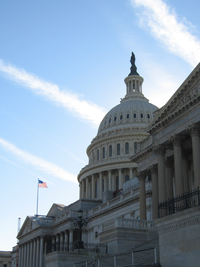 If not a total surprise, I was saddened to hear that Wandsworth’s local paper is no more. Even more so that it passed with no-one noticing, the issue published just before Christmas, it was announced, was the last. It has now been merged with the Wandsworth Guardian meaning, effectively, it is no more.
If not a total surprise, I was saddened to hear that Wandsworth’s local paper is no more. Even more so that it passed with no-one noticing, the issue published just before Christmas, it was announced, was the last. It has now been merged with the Wandsworth Guardian meaning, effectively, it is no more.
As I said, it was not a surprise, we all knew that its circulation was low and I suspect that it may well have been reliant on advertising revenue from all the ads the council are legally required to publish in their local press. But it is worth remembering it was not always like that.
When I first got involved in Wandsworth politics it was viewed with the utmost importance. As a council candidate I was encouraged to get letters published in it so I would have some name recognition, and I remember pushing press releases and photos (taken with old fashioned film and developed at Snappy Snaps) through the door of their offices on West Hill. But while it might seem horribly naive, it really wasn’t that long ago that local newspapers were the main, if not the only, source of local news.
The rise of the internet
The internet wasn’t always the pervasive font of all knowledge it is now. Many people simply did not have access, those that did were forced to endure tortuously long downloads on a dial-up connection that got cut off when someone used the phone in the other room. Even when you were connected, there just weren’t trusted sources of local news or if there were, Google didn’t exist to help you find them.
But now the Internet is everywhere, on our computers at work and at home, sitting in our pockets on our phones or waiting to be summoned, like a genie, from our low-cost netbook. And with it comes an expectation that curiosity about news will be satisfied immediately, not when the local paper is published next Wednesday.
The regionalisation of news
Alongside came a change in the way we view ourselves. It has always been there, to a degree, but I think we are far more Londoners now than we were. Most people, if asked to name their local paper, would immediately answer the Evening Standard (and some might even suggest the Metro or thelondonpaper or London Lite). After all, many people spend the daylight hours at work in the City or Westminster rather than at home in Wandsworth.
I don’t think this is necessarily a bad thing: I have enormous pride in being a Londoner, and being a very small part of the greatest city the world will ever know. But I don’t think that pride is incompatible with my pride in being a part of Wandsworth, or Battersea, or even a resident of the Shaftesbury Park Estate. Each one brings with it a unique source of pride – whether it’s the joy of the Wandsworth diversity, living so close to Battersea Park or being a temporary resident in a fabulous Victorian housing project – that I just can’t get from living anywhere else.
Defending our communities
My sadness comes from the fact that a little symbol of one of those communities, Wandsworth, has now gone. We don’t really have a local paper anymore, that you could nip to your newsagent once a week to get with some milk. That does not mean we have lost the fight and are all part of a big homogenous London and nothing else.
The council has always defended our town centres, which provide distinct and vibrant hubs rather than giant anonymous shopping centres. We have the amenity societies in Battersea, Putney and Wandsworth that stand up for what they believe is best about their patches. In Battersea there is even the SW11tch campaign fighting hard against the dreadful Clapham-creep that estate agents seemed determined to impose on us good Battersea folk.
Communities will change. That is inevitable. Be it 100 years or 1,000 years some historian with a niche interest will look back on the communities I am passionate about with a mixture of bemusement and intellectual curiosity because the concepts and areas are as alien to him as the feudal system is to children in our schools. But that does not mean we shouldn’t fight for the communities we love, and it does mean we should spare a moment to pay our respects to a fallen comrade: The Wandsworth Borough News: 1885 – 2008.

 I am excited to see the
I am excited to see the 
 If not a total surprise, I was saddened to hear that Wandsworth’s local paper is no more. Even more so that it passed with no-one noticing, the issue published just before Christmas,
If not a total surprise, I was saddened to hear that Wandsworth’s local paper is no more. Even more so that it passed with no-one noticing, the issue published just before Christmas,  I missed the news yesterday that the government has
I missed the news yesterday that the government has  Isn’t it odd to hear the Labour and Green Party GLA members belittling Boris Johnson’s council freeze because it will only save 11p a week on council tax? These are the same people who presumably believe that 2.5% off VAT will save the world.
Isn’t it odd to hear the Labour and Green Party GLA members belittling Boris Johnson’s council freeze because it will only save 11p a week on council tax? These are the same people who presumably believe that 2.5% off VAT will save the world.